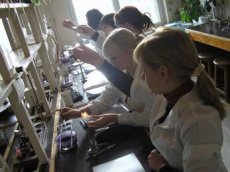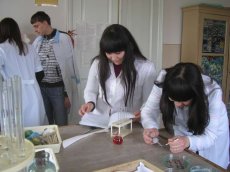Microbiology Virus Physiology
 Our own site:
Our own site:
History
Plant physiology is founded in 1889 by Vladimir Ivanovich Palladin, who established a plant physiological school. B. I. Palladine in 1914 was elected a valid member of the Emperor Academy of Sciences. From 1897 to 1903, Professor V. A. Rotert was assigned a chair. Among his students, an AN correspondent member of USSR, a well-deserved scientific expert of SSR V. K. Zalesski, who led the cafeteria during 1903-1936. In 1936 and 1948, the head of the cafeteria was a student of V. K. Zaleski E. O. Shatalova-Zaleskaya. From 1949 to 1974, the cafeteria was headed by Professor K. Samwalov, who started environmental and physical research on the role of external environmental factors in plant growth and development. Investigator V. K. Zaleski Professor G. I. Semenenko has been the Dean of the Biological Faculty for over 14 years (1948-1962). Professor G. I. Semenenko ' s studies on the exchange of nucleic acids from plants were first in Ukraine and widely accepted abroad. Since 1964, the cafeteria has been known as the physiology and biochemistry of plants. During the period 1975-1993, the Chair was run by E. A. Shatalova Zaleska and G. I. Semenenko, Professor M. D. Timashov. In the 1980s, it established a new topic of cafeteria research - stress and adaptation mechanisms in plants. In 1998, he was assigned the post of Honorary Professor of Harkov National University. Since 1993, the cafeteria has been run by Dr. B. V. Zmurco.
Timashov. In the 1980s, it established a new topic of cafeteria research - stress and adaptation mechanisms in plants. In 1998, he was assigned the post of Honorary Professor of Harkov National University. Since 1993, the cafeteria has been run by Dr. B. V. Zmurco.
Abiturinent
Cafédra prepares baccalaureates and masters of biology on two specializations: " Plant health and biochemicals " and "Microbiology and virology" On-site and distance-learning.
Graduates of the Café teach biological disciplines at secondary and tertiary level I-IV accreditation levels, are employed by researchers in biological, medical, pharmaceutical and agricultural research institutions, as well as health-care institutions, clinical, biochemical or bacteriological laboratories.
The cafeteria has an aspirant. Each year, 2-3 postgraduates and several co-investigators are enrolled in the cafeteria.
Science
Main scientific directions: the legality of physiological-genetical regulation of plant development, physiological-genetic morphogenesity patterns in the crop of plant cells and tissues in vitro, determination of physiological-biochemical interoperability mechanisms for plant-microorganism. In addition, studies of physiological-biochemical mechanisms for adaptation of plants to environmental hazards and patterns of species formation of forest soil mycobiotics continue in the Chair.








